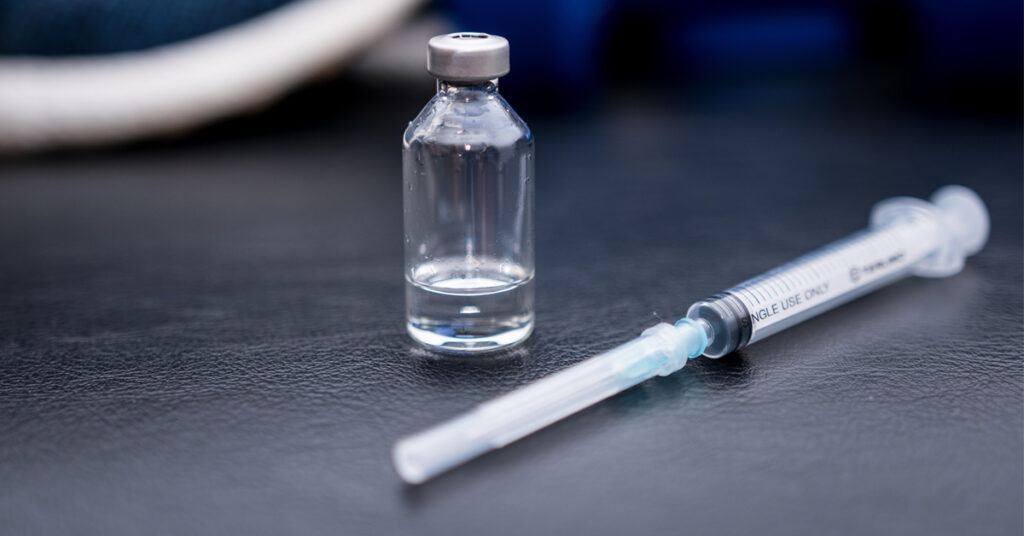Testosterone is a hormone that is released directly into the bloodstream. Once there, it travels to organs and tissues throughout the body, regulating many different physiological processes.
What Is Testosterone in Charge Of?
Although found in both men and women, testosterone levels are considerably higher in men. It is an androgen, meaning it is responsible for developing male characteristics such as facial hair and a deeper voice.
Testosterone also helps the male body build muscle mass and bone density, and it’s essential for:
- Sperm production
- Sex drive
- General mood regulation
- Reproductive function
Testosterone is made in the gonads, or testicles, a key part of the male reproductive system. If the testicles fail to make enough testosterone, it can result in a condition known medically as hypogonadism. Causes of low testosterone include:
- Damage to the testicles
- Being overweight
- Use of some medications
- Having a chronic medical condition
How Can I Know if I Have Low-T?
The term low-T refers to low testosterone levels.
A typical testosterone range for an adult male is between 265 and 923 nanograms per deciliter (ng/dL). A testosterone level that falls below 265 ng/dL is generally classified as low-T.
To measure testosterone, you will have a sample of blood drawn from your arm at the lab which will be analyzed.
It’s important to note that these values are just a reference point. While your urologist will evaluate your testosterone measurement, they will also consider other health factors when assessing your situation.
What Are Symptoms of Low-T?
As men get older, their testosterone levels may begin to decrease. Men who have low testosterone can experience symptoms such as:
Fatigue
Depression
Decreased muscle mass
Decreased sex drive
Yet, the symptoms of low testosterone are varied and can also be attributed to other reasons. Conditions such as high blood sugar, being overweight, or other underlying medical conditions can lead to similar symptoms.
For this reason, providing your urologist with your complete medical history will allow them to make an accurate assessment and find out whether your symptoms are due to low testosterone or other conditions.
Injections For Testosterone Replacement
Testosterone injections are a form of hormone therapy used to treat low-T. These injections contain synthetic testosterone and are administered under the skin or directly into the muscles.
There are three different types of testosterone injections:
Testosterone Cypionate
Testosterone cypionate (DEPO) is a commonly used injectable testosterone. It is available in both brand-name and generic forms and is injected into the buttock muscle every 1-4 weeks. The dosage ranges from 50-400 mg, and it can be administered at home or by a healthcare provider.
Testosterone Enanthate
This injectable testosterone comes in two forms:
- Testosterone enanthate (Xyosted) is an under-the-skin injection typically administered in the stomach area with a recommended dosage of 75 mg weekly. It can usually be done at home.
- Other versions of testosterone enanthate are given as intramuscular injections into the buttocks every 1-4 weeks.
The body may metabolize or break down testosterone enanthate slightly faster than testosterone cypionate.
Testosterone Undecanoate
Testosterone undecanoate (AVEED) is a newer injectable testosterone given as an intramuscular injection into the buttocks by a healthcare provider. The dosage is 750 mg, with the first dose followed by another 4 weeks later. After the initial doses, it can be administered every 10 weeks. This form allows for less frequent injections compared to other types.
What You Should Know About Testosterone Injections
Each of these testosterone injections has specific dosages, administration methods, and approved uses. They are typically prescribed based on your needs and response to treatment.
When used appropriately, testosterone injections can improve symptoms of low-T, such as:
- Restoring sexual function
- Increasing muscle strength
- Improving mood and energy levels
Potential side effects include:
- Acne
- Pain at the injection site
- Changes in mood
- A risk of more serious effects like liver or heart problems
Regular monitoring by your doctor is necessary to adjust the dosage and check for any adverse effects.
If you are experiencing symptoms that might be related to low testosterone, or if you have questions about testosterone support, contact one of our specialists to determine if testosterone injections may be the right approach for you.

